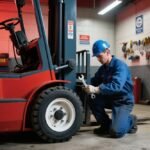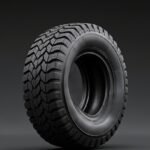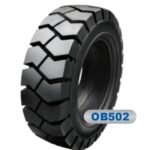Introduction
When choosing tires for industrial vehicles like forklifts, airport tugs, or heavy-duty carts, the debate between 6.00-9 solid tires and pneumatic (air-filled) tires is crucial. Each type offers unique benefits—solid tires excel in durability, while pneumatic tires provide better shock absorption. This guide breaks down their differences to help you make an informed decision.
1. Structural Differences
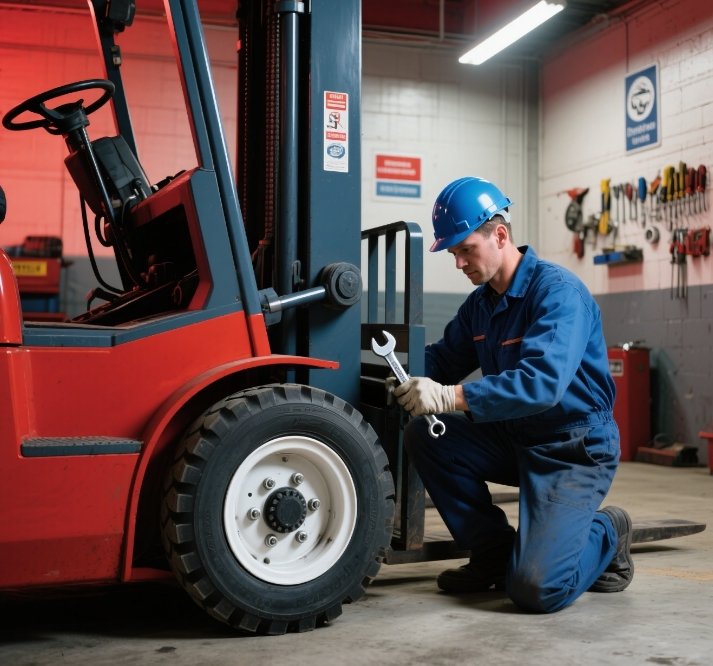
Solid Tires
- No Air Required: Made from dense rubber or polyurethane, eliminating puncture risks.
- Heavier & More Rigid: Weigh 2-3x more than pneumatic tires, reducing vehicle speed but increasing stability.
- Long Lifespan: Last 3-5 years even in harsh environments (e.g., construction sites, scrap yards).
Pneumatic Tires
- Air-Cushioned Design: Uses compressed air for shock absorption, ideal for uneven terrain.
- Lighter & More Flexible: Better for high-speed applications (e.g., logistics vehicles).
- Requires Maintenance: Regular pressure checks and puncture repairs needed.
2. Performance Comparison
Feature6.00-9 Solid Tires6.00-9 Pneumatic TiresDurabilityResists nails, glass, debrisProne to puncturesComfortRougher rideSmoother on bumpy roadsLoad CapacityHandles heavier loadsLower max weight capacityCostHigher upfront, lower long-termCheaper initially, more repairs
3. Best Applications
Choose Solid Tires If:
✔️ Your workplace has sharp debris (e.g., warehouses, ports).
✔️ Downtime is costly (no blowout risks).
✔️ Load stability is a priority (e.g., forklifts).
Choose Pneumatic Tires If:
✔️ Speed and comfort matter (e.g., airport baggage carts).
✔️ Terrain is uneven (air cushioning reduces vibration).
✔️ Budget is limited upfront.
4. Cost & Safety Considerations
- Solid Tires: Save on maintenance but cost ~$200 more per tire. Ideal for safety-critical roles.
- Pneumatic Tires: Require tire sealants or puncture-resistant liners for added protection.
Conclusion
6.00-9 solid tires are the go-to for harsh, high-risk environments, while pneumatic tires suit dynamic, speed-focused operations. Assess your needs—durability, cost, or performance—before deciding.
Pro Tip: Pair solid tires with anti-slip wheel rims for extra stability!
Related Product
-
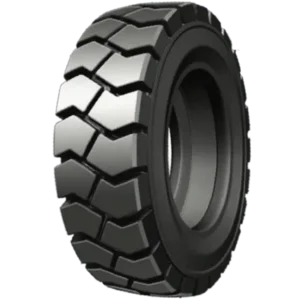 6.00-9/4.00 tyres OB502 Pattern Solid Forklift Tyres by Advance Brand
6.00-9/4.00 tyres OB502 Pattern Solid Forklift Tyres by Advance Brand -
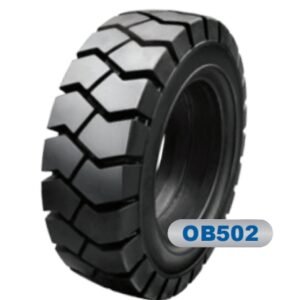 Advance Brand High Quality Solid Tires 18×7-8/4.33 with OB502 Pattern ForkLift Tire
Advance Brand High Quality Solid Tires 18×7-8/4.33 with OB502 Pattern ForkLift Tire -
 High Quality Advance Solid Tires 5.00-8/3.00 with OB502 Pattern for Diesel ForkLift
High Quality Advance Solid Tires 5.00-8/3.00 with OB502 Pattern for Diesel ForkLift -
 Advance Solid Tires 4.00-8/3.00 with OB502 Pattern for Diesel ForkLift
Advance Solid Tires 4.00-8/3.00 with OB502 Pattern for Diesel ForkLift


